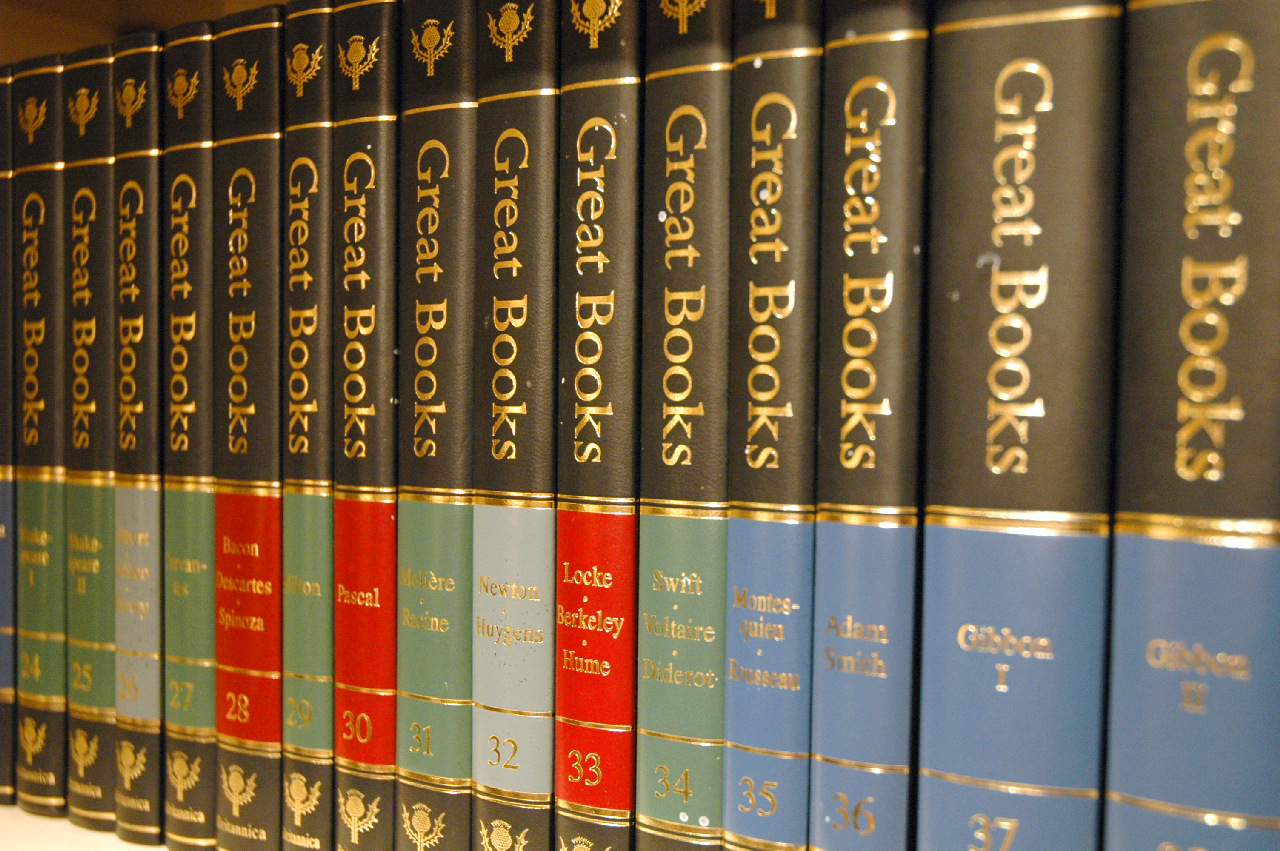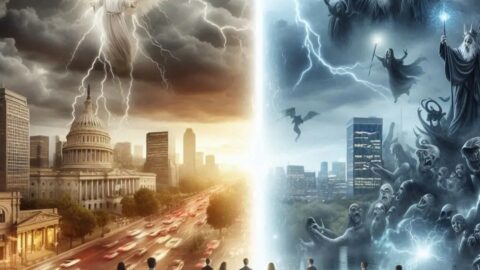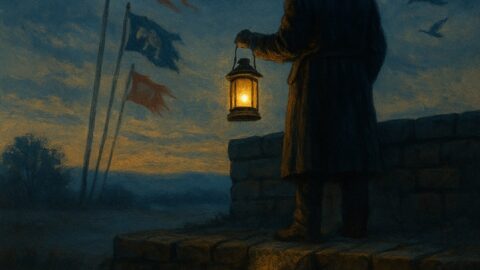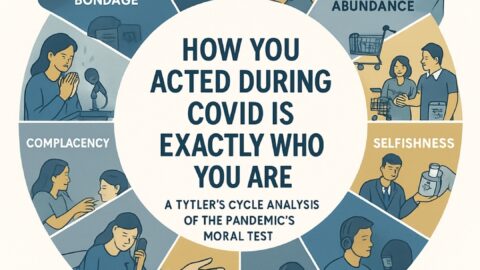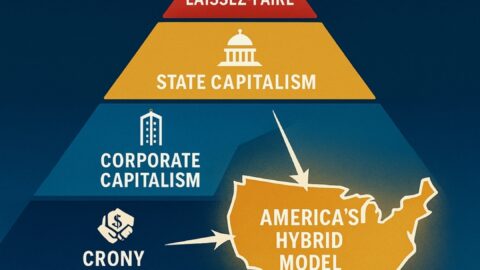While I was a police officer, I sought reprieve by listening to talk radio shows. I was first introduced to Rush Limbaugh. It was a world I didn’t know existed. I started to learn about politics, but I realized it was deeper than the two-party system. It was critical to understand the two-party system at times could just be noise. I soon found myself trying to boil it down even further.
It was curiosity that propelled me further into understanding the world. There were two areas that fascinated me in understanding what was happening in our present day and age. One was diving deep into the writings of the Founding Father generation to get a clearer voice of what they were trying to establish. I felt this was never explained or even examined by the school system. I will go into this subject with further articles, but right now I want to speak about the Great Conversations1.
As I started to build on my civic vocabulary and foundation, I heard another radio program by Bryan Hyde. The show dived into the Great Conversation and after having a discussion with my father about it. I learned he had the set of Great Books of the Western World2 which “is a series of books originally published in the United States in 1952, by Encyclopedia Britannica, Inc., to present the great books in a 54-volume set.”
Bryan recently wrote on the subject of the Great Conversation3:
“Most people aren’t aware of the Great Conversation, even though it’s been going on around them for their entire lives. Truth be told, this exchange of ideas has been going on for at least as long as we have written records. This great conversation is where the ideas that shape humanity’s understanding are being debated and discussed. You’re not likely to find them in a textbook, yet the conclusions tend to shape what is taught in textbooks for multiple generations.”
He continues on to tell us how the conversation has described “the ideas and ideals that were being examined by the world’s leaders at any given moment in human history.” Tackling questions of what justice is, happiness, good and evil and what is beauty.
In Bryan’s closing remarks:
“People who study the classics will find that the common questions that have occupied mankind haven’t really changed much over the ages. This is because human nature has remained remarkably constant. And those willing to pay the price to go beyond the superficial sources of information like news and entertainment will increase both their understanding and their influence.”
Our modern society places more emphasis on a diploma, but I learned the true education is the substance contained in the Great Conversation. I observed and experienced, that most people, once they received their diploma they stopped learning, other than on the job training.
“Anyone who stops learning is old, whether at twenty or eighty. Anyone who keeps learning stays young.” — Henry Ford
After reading what Joseph Campbell described, that “Life is like arriving late for a movie, having to figure out what was going on without bothering everybody with a lot of questions, and then being unexpectedly called away before you find out how it ends.”
This was a great description of what life is really all about. Being curious, I had a lot of questions and still do. People are busy and it is hard to pull them away from life and I also started to realize, they didn’t have the answers and weren’t really searching for the deeper questions.
“Self-education is, I firmly believe, the only kind of education there is.” — Isaac Asimov
This discovery was a duh moment: “The moment you realize that you don’t know something or are just learning something most everyone knows unless [they are] . . .4” ignorant.
I started to see our current schooling system as a way of teaching people what to think, instead of teaching them how to think.5 I once heard, wise people study history, because if you don’t know what was, you can’t understand what is.
In school, I disliked reading and thought it was a waste of time, but as I get older, and more mature, I have realized it is wisdom to study history, in order to understand our present-day situation. I realized books bridged what Joseph Campbell alluded to by “having to figure out what was going on” in the metaphorically speaking “movie” of life.
“What an astonishing thing a book is. It’s a flat object made from a tree with flexible parts on which are imprinted lots of funny dark squiggles. But one glance at it and you’re inside the mind of another person, maybe somebody dead for thousands of years. Across the millennia, an author is speaking clearly and silently inside your head, directly to you. Writing is perhaps the greatest of human inventions, binding together people who never knew each other, citizens of distant epochs. Books break the shackles of time. A book is proof that humans are capable of working magic.” — Carl Sagan
A book is magical, as a connects minds of deceased and living people silently in one’s own head by having a conversation that bridges thousands of years of time. This is the key to being self-taught.
“Many who are self-taught far excel the doctors, masters, and bachelors of the most renowned universities.” — Ludwig von Mises
This is the only way we can see further is by getting involved in the Great Conversation.
“If I have seen further, it is by standing on the shoulders of Giants.” — Isaac Newton
(1) https://en.wikipedia.org/wiki/Great_Conversation
(2) https://en.wikipedia.org/wiki/Great_Books_of_the_Western_World
(3) https://hydeinplainsight.substack.com/p/the-great-conversation#details
(4) https://www.urbandictionary.com/define.php?term=Duh%20moment
(5) Margaret Mead
Here is a place one can read the Great Conversation https://archive.org/details/in.ernet.dli.2015.150395/page/n8/mode/1up

